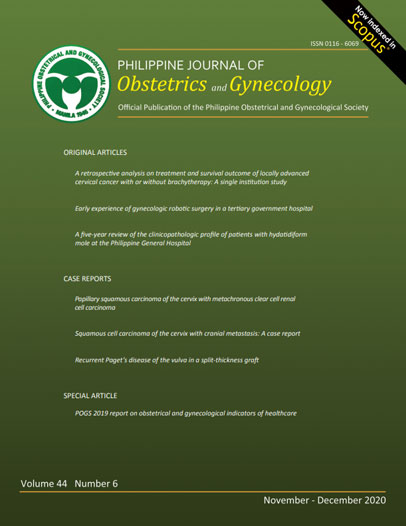Search for articles
Article Detail
Factors associated with clinical competence in the gynecologic oncology subspecialty rotation of obstetrician-gynecologist (ob-gyn) residents
Ana Victoria V. Dy Echo, MD, FPOGS, FSGOP
Department of Obstetrics and Gynecology, Philippine General Hospital, University of the Philippines-Manila
Methodology: Thirty-one residents rotating in subspecialty were given MCQ examination and skills evaluation pre- and postrotation. Logbooks were completed listing all learning activities and number of cases encountered. Difference in scores was determined using paired t-test. Association of factors with clinical competence was determined using chi square and Pearson correlation coefficient.
Results: There was a statistically significant increase in the overall and skills scores, but not in the knowledge. Training institution, academic aptitude, and duration of rotation were associated with clinical competence. Conference, outpatient duty, case load, fellows as teachers and active participation were strongly associated with clinical competence. Bedside teaching, inpatient duty, and consultants as teachers were moderately associated with clinical competence. Passive participation was weakly associated with clinical competence.
Conclusion: Overall, the residents did not achieve clinical competence in Gynecologic Oncology as a result of the rotation. Residents from a training institution with a Gynecologic Oncology fellowship training program and with academic aptitude > 60% are more likely to achieve clinical competence. Increasing rotation duration to > 2 weeks, time spent in the different activities, case load, fellows and consultants interaction with residents, and active participation may increase likelihood of achieving clinical competence.
Current Issue
Search article

